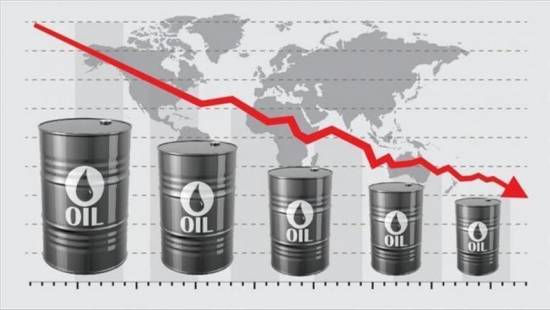Oil prices were down on Thursday over a surprise build in US crude oil inventories and the relentless surge in coronavirus cases, especially in India and Japan.
International benchmark Brent crude was trading at $65.18 per barrel at 0700 GMT for a 0.21% decrease after closing Wednesday at $65.32 a barrel.
American benchmark West Texas Intermediate (WTI) was at $61.12 per barrel at the same time for a 0.37% drop after it ended the previous session at $61.35 a barrel.
The increase in commercial crude oil stocks in the US, the world's largest oil consumer, signaled a fall in oil demand and exerted downward pressure on oil prices.
US commercial crude oil inventories increased by 0.1% for the week ending April 16, according to the latest data released by the Energy Information Administration (EIA).
Inventories increased by 600,000 barrels, more than the market expectation of a fall of 2.8 million barrels.
Concerns over the rise in new coronavirus variant cases in Japan, the world's third-largest oil importer, and India, the world's third-largest oil consumer, are negatively reflecting on a global economic recovery and oil demand, which are pushing oil prices down.
Daily COVID-19 cases continue breaking new records in India after the country registered a staggering 314,835 new infections in the past 24 hours - the highest figure since the start of the pandemic.
The hospitals across the country are struggling to maintain oxygen supplies and are suffering from a shortage of beds and treatment drugs, such as Remdesivir.
In Japan, Prime Minister Yoshihide Suga is expected to declare an emergency in the provinces of Tokyo, Osaka, and Hyogo due to a rise in infections, which have put pressure on the health care system.
This marks the third time that Japan has imposed a state of emergency since April last year.
Markets are now focused on the upcoming meeting in May of the Organization of the Petroleum Exporting Countries and allies led by Russia, known as OPEC+ when major oil producers will discuss their production quotas.
During the previous meeting on April 1, the group decided to increase their production by 2.1 million barrels per day (bpd) until the end of July, incrementally easing the current production cut of 7.9 million bpd./aa


